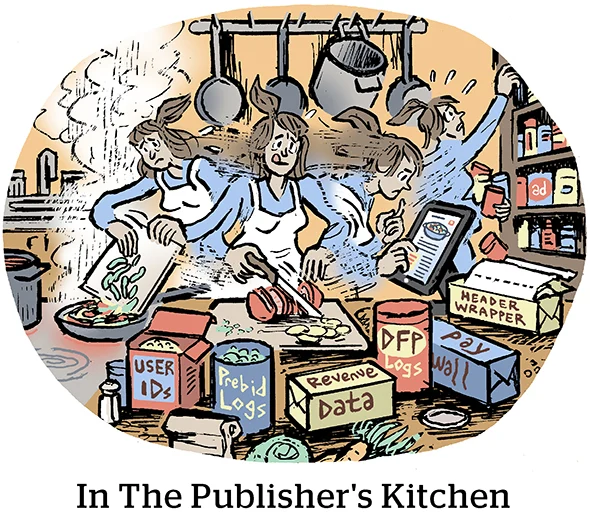Simplification seems to be all the rage in ad tech these days.
FreeWheel thinks the best way to simplify streaming video is by fostering more direct connections between buyers and sellers.
To that end, on Tuesday, the ad technology vendor announced several new features within its Streaming Hub, including improved data signals, automated bidding optimization, dynamic floor pricing and live events inventory management.
These enhanced capabilities are intended to help publishers and advertisers transact on streaming video inventory with fewer intermediaries in between, said FreeWheel General Manager Mark McKee.
Combining ad tech capabilities
Back in 2020, FreeWheel combined its ad server and SSP into a “unified decisioning product” for publishers and other sellers, which the company has been updating with new functions ever since.
The FreeWheel Streaming Hub, which, until a 2024 rebrand, was referred to as an MRM (short for “monetization rights management”) platform, sits on the publisher side of the business as part of that unified product.
Starting last year, FreeWheel began working with publishing partners like Roku, A+E Networks, DIRECTV, Warner Bros. Discovery, Spectrum Reach and Locality to develop and beta test this most recent suite of capabilities.
The goal, McKee said, was to ensure that publishers can deliver the audiences that advertisers want at scale, while still retaining control over their inventory.
Streamlining with automated systems
A lot of the new tools sit within one centralized dashboard, which can be accessed by various team members based on their roles within the company.
One new feature is the dynamic floor pricing system, which can now be guided by an automated AI model to make real-time decisions.
Previously, FreeWheel’s floor pricing capabilities relied on manual adjustments that could be cumbersome for an ad operations team to maintain, said McKee. Automating this process allows publishers to better understand advertisers’ demands and market changes in real time, so they can better maximize the value of their inventory.
McKee also highlighted recent investments made to the Streaming Hub’s data suite, which features tools related to both identity and audience management.
Onboarding data segments can be a slow process, let alone accurately planning and optimizing against that data. Additionally, each advertiser might have its own proprietary ID or first-party data sources it’s using, making it harder for publishers to make their inventory easily addressable at scale.
That complexity is “never going away,” said McKee. But FreeWheel aims to simplify that complexity just enough that someone at Roku, for example, does not have to spend 80% of their day on processes that don’t end up adding much value in the long run.
Avoiding the ad tech tax
So far, the teams at Roku are “very happy” with these updated Streaming Hub features, according to Miles Fisher, Senior Director of Strategic Advertising Partnerships at Roku.
Bringing demand closer to supply doesn’t just streamline the day-to-day workflows of Roku’s employees, said Fisher, but also funnels more money to Roku that would have otherwise gotten sucked up by the dreaded ad tech tax.
With 2025’s tariff-dominated economic prospects still looking bleak, the role of media buying is “under more scrutiny than ever,” added Fisher. So fostering partnerships that can evolve and change with the market can benefit all parties, not just the publishers and content owners.

















